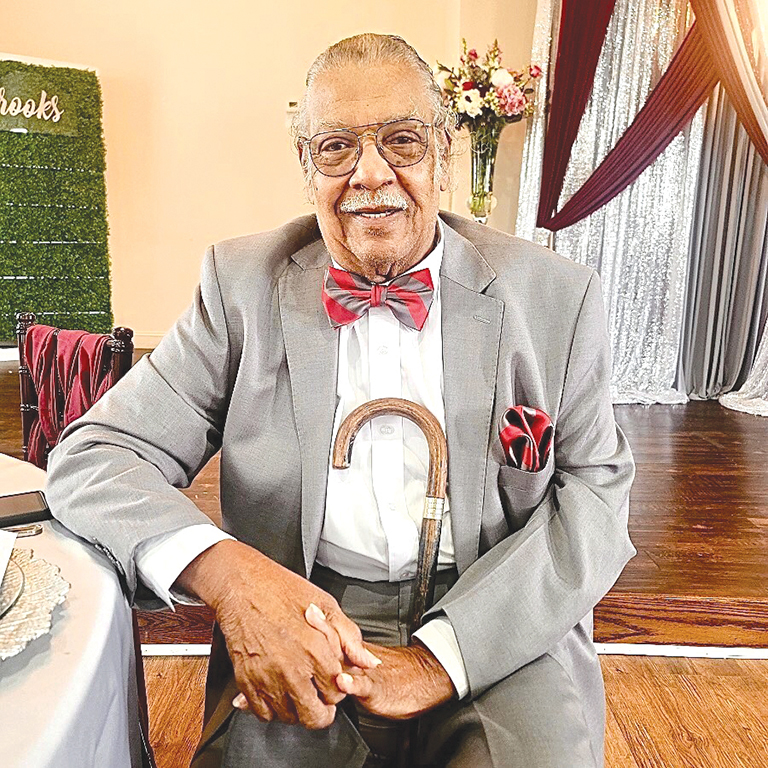BY THE LEE COUNTY LISTENER
LEE COUNTY —
The Lee County Listener published its newest installment of its Black History Month Series last Monday, Feb. 19. Hosts Sam DiChiara and Garrett Martinez sat down with Ralph Foster, longtime history teacher, coach, carpenter, photographer and entrepreneur. Below is an excerpt from their conversation, edited for length and clarity.
SAM:
So, Ralph, you wore a lot of hats at Loachapoka. You were a history teacher, a basketball coach, an administrator. You did some photography, some carpentry. What was it like juggling all those different responsibilities?
RALPH:
I found it interesting. We built stadiums. The first basketball team played on dirt outside, so that meant that we had to go cut a tree down and put a backboard up. … Things have made it very easy for me to go from one transition to another.
The Lord blessed me with a talent to build and to construct, and I could just take it and run with it. So, many of the things that needed to be done, I’d take my saws and everything down to the school and build what needed to be built.
Looking back on my life, the education side of it was probably not the highlight of my life.
SAM:
Really? What would you say was [the highlight of your life]?
RALPH:
I was a hustler. I think one of the first ventures I went into was a photographic studio. I had a studio, a record shop and a gift shop. Out of college, I spent I guess the first 10 years of my life working at the family business. And the family business was started in 1905. My grandmama and granddaddy started, had a grocery store a block down from here. …
The Auburn University land grant said that you could not sell liquor within seven miles of the college campus, and you can’t sell beer within one mile of the college campus. And the store down here was about a mile and a fourth from college campus. We had a great beer business. …
One of our best customers was Shug Jordan. He used to come in every Friday, and I would be standing in the window, looking to see him because — this is 1961, ‘62 — I knew that he was going to give me a $5 tip. And he’d pick up a couple cases of Budweiser. …
Then, I went from there and opened the first black barbershop in Auburn. … I woke up one morning and I told my wife, “I’m tired of going to Tuskegee to get my hair cut. I’m going to build a barber shop.” I knew nothing about the skills of barbering, and me and a bricklayer down the street built a barber shop. …
What I visualized was integration. I said, “Auburn is going to integrate, and the students and the ball players are going to have to have somewhere to get their hair cut. And we cut all of the early athletes’ [hair]: Charles Barkley, Willie Andrews, Henry Harris — who was the first Black athlete they had at Auburn — and James Owens, who was the first Black football player. …
Then I went from that into the photographic business. I had a photography studio and a record shop. Then I got out of the music shop business and put a beauty shop in there. I converted the beauty shop recently into a loft apartment. …
I was still working the family business, and the principal [of Loachapoka] and I were having a drink at Christmastime, and he told me that he needed a teacher for Monday. The lady that was supposed to come called and said she wasn’t coming. I said, “Well, what was she going to teach?” He said, “Mathematics.” And I said, “Well, I could probably handle that until June.” And June ended up being 30 years. That’s how I got to Loachapoka.
Episodes of the Lee County Listener are posted weekly anywhere you get your podcast and on The Observer’s Facebook page: www.facebook.com/opelika.observer/.

